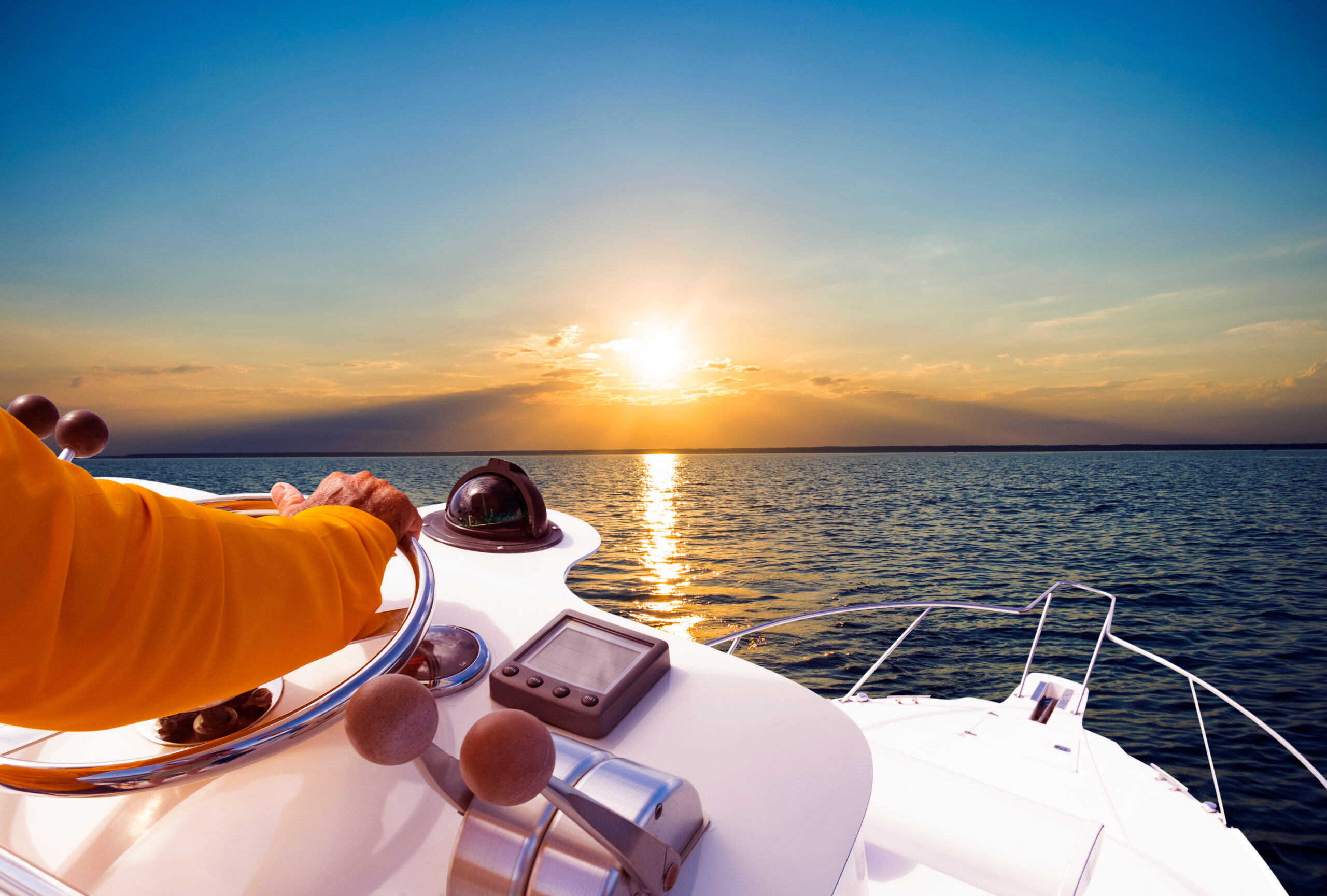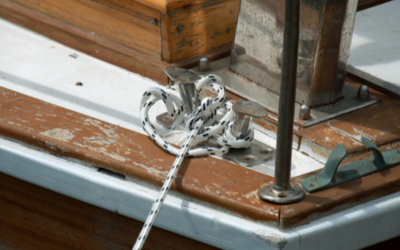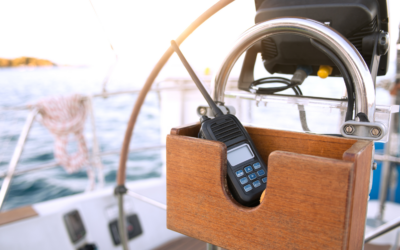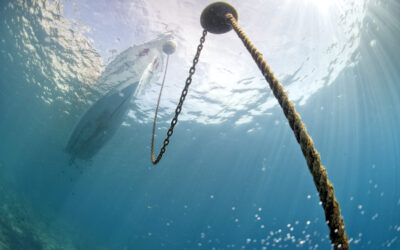In boating, etiquette is more than just about polite behavior and waving at fellow boaters as you pass each other. Etiquette is also about safety for yourself, your crew, and the boaters around you. If you’re brand new to the sport, it’s best to learn a few rules before head out into the water. If you’re a seasoned captain, it still wouldn’t hurt to do a quick review. Here are a few.
In the Water
- The “stand-on vessel”—the vessel approaching you from the right—has the right of way, and the “give-way vessel” needs to accommodate the other.
- In a situation with two boats coming head on, if possible, both vessels turn to starboard and pass port to port. That way, there’s no guesswork about the intentions of the other captain and a collision is avoided.
- A sailboat under sail has the right-of-way over a powerboat. If the sailboat is running with an engine, it’s considered a powerboat regardless if the sails are up.
- If you’re being overtaken, your responsibility is to maintain course and speed. If that scenario puts anyone in harm’s way, just slow down and let the other pass because the first job of any captain is to avoid a collision regardless of who has the right-of-way.
- Human powered vessels (kayaks, SUPs, canoes, etc.) have the right-of-way over any other vessel including a sailboat.
- If another vessel is restricted in its ability to maneuver (due to its size, draft or any other reason) it’s the stand-on vessel and you should accommodate it.
- When two boats are under sail, the one on the starboard tack (wind coming over the starboard side of the deck) has the right of way over the one on the port tack. If both are on the same tack, the leeward (downwind) boat has the right of way.
Fueling, Dock Manners, and Boat Launch Etiquette
- If you’re launching or retrieving your boat at a ramp, do so efficiently so others get their turn. Is it your first time launching a boat? Check out our blog for tips!
- Cut down on your ramp time by pulling over to a dock or beach once off the trailer and load guests and gear there. Don’t drain, clean, or unload your boat while on the ramp.
- At a fuel dock, get fuel, pay your bill and move out of the way. If you need to buy groceries or bait, relocate your boat.
Anchorage Rules
- If you’re entering an anchorage, mimic the other boats in how you tie off, how much line you use and how much distance you allow between you and the other boats. If everyone is swinging to one anchor, don’t set two or you’ll move in a different way when the current or wind changes and you could cause a collision.
- Respect your anchorage neighbors: keep your music to yourself and don’t run a generator past 8:00 pm or before 7:00 am.
- Never drive fast through an anchorage as there may be people swimming or snorkeling and they’re hard to spot.
- Watch your wake so as not to upset other smaller boats. Some harbors have a speed limit—know it and respect it.
- Respect other boaters and the environment. Don’t throw your trash overboard. If it’s organic like banana peels or fish guts, you may be able to toss it if you’re far enough offshore but in harbor or anchorage, nobody wants to swim in your lunch. Plastic never goes overboard under any circumstances.
Offering Help
- Offer to help catch the dock lines of a vessel coming to a dock; however, if the captain or crew wave you off, respect that they have a method and aren’t looking for assistance.
- If you’re on the ocean, stopping to assist a vessel in distress (or at least offering to relay messages to authorities or rescue agencies) is necessary—you’re legally obligated to render assistance so long as you don’t imperil yourself or your vessel.
- Always make sure you are prepared for any emergency.
VHF Radio Conduct
- VHF channel 16 is for distress (Mayday) calls only. Don’t use it for extended chats with other boaters.
- Once you’ve contacted another vessel, ask them to switch to another frequency to continue the conversation.
- Making a false distress call is against the law. When should a Mayday call be made? Mayday is a distress call that is a request for assistance. It should be made only if there is immediate danger to life, property or the environment.
- If you’ve run out of gas but are otherwise okay, don’t call a Mayday on the radio. Contact a vessel towing organization or the Coast Guard to relay a request for assistance.
These are only a sampling of rules of the road, but learning even just a few of these will cover you in most recreational boating situations. Have fun but be smart and safe!



